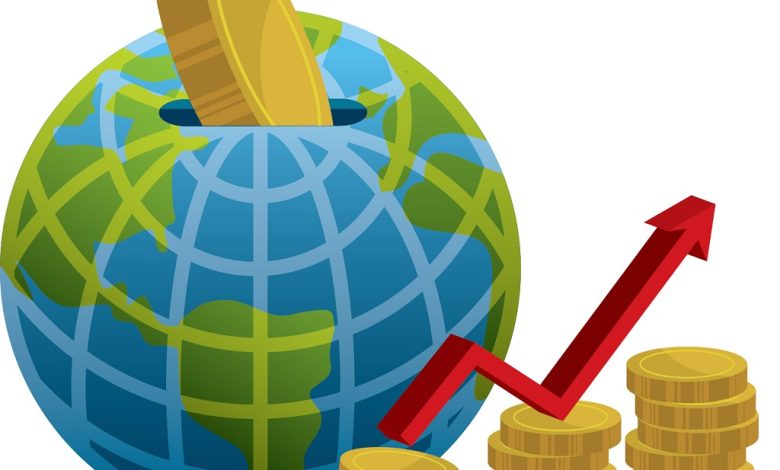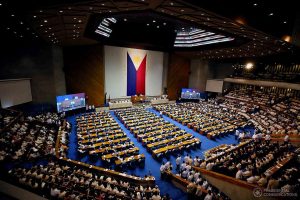Economic security is national security

Last October, Japan unveiled a new minister for economic security, Takayuki Kobayashi, and also a proposed economic security law to be submitted to parliament in 2022.
Prime Minister Fumio Kishida described the economic security minister’s role as ensuring that “we have the strategic technology and supplies, prevent technologies from flowing out of the country, and create a self-sustaining economy.”
And yet, it is undeniable that the main concern of such new measures is to restrain China. The economic security law is “targeted at China’s increasing economic clout over Japanese companies and the risk of trade disruption as experienced when China halted shipments of rare earth elements in 2010 and during the shortage of medical supplies at the beginning of the COVID-19 pandemic.” Indeed, Japan approaches “China’s economic coercion from a national security perspective, pointing to the risks of disrupting of semiconductor supplies from Taiwan, export restrictions on rare-earths, purchases of Japanese companies and land, and economic espionage.” (“Japan’s opaque economic security policy agenda,” East Asia Forum, December 2021)
Akira Igata, executive director at Tokyo’s Tama University Center for Rule-Making Strategies, is even more succinct: “These are all responses to the new reality of China becoming much stronger, China being dissatisfied with the status quo, China exploiting the system.” (“Japan minted a new economic security minister to fix supply chain disruptions,” Quartz, October 2021)
Economic security is a must idea for the Philippines. In relation to the economy and trade, the main area of concern for the country should not be larger Philippine conglomerates but rather the possibility of foreign powers sneaking up and acquiring Filipino companies or influencing to the point that economic powers are exercised from beyond Philippine jurisdiction, constricting Filipino entrepreneurial efforts, and damaging local consumer interests.
After all, the primary job of any Philippine government, as provided under our Constitution, is “to serve and protect the people” and to “call upon the people to defend the State.” The government should also: “pursue an independent foreign policy,” “strengthen the family as a basic autonomous social institution,” and to “equally protect the life of the mother and the life of the unborn from conception,” to “inculcate in the youth patriotism and nationalism,” “develop a self-reliant and independent national economy effectively controlled by Filipinos,” and “foster the preservation, enrichment, and dynamic evolution of a Filipino national culture.”
One study (“Relationships between the economy and national security: Analysis and considerations for economic security policy in the Netherlands,” Lucia Retter, et al, 2020) points out that “national security can also be understood as the protection of infrastructure and sectors that are critical for the uninterrupted functioning of a nation’s economy. This interpretation of national security highlights the strong interconnectedness between security and the economy in a system that is complex, interdependent and involves multiple variables.”
Two key findings are that “foreign direct investment (FDI) and ownership of critical infrastructure and sectors can increase the risk that foreign entities gain influence and control over their operations” and that “espionage and access to sensitive information could be enabled by the close proximity or ownership of critical infrastructure and sectors by a foreign body.”
Take those findings and place them within the context of China being the Philippines’ biggest Asian FDI source (January-May 2021 showed a total of $10.33 million, representing a 128% increase from the same period of the previous year). Add to that a $1.1-billion trade deficit, with 150,000 Chinese workers (others estimate 200,000) entering the Philippines these past few years.
The 2017-2022 Philippine National Security Policy defines national security as “a state or condition wherein the people’s welfare, well-being, ways of life; government and its institutions; territorial sovereignty; and core values are enhanced and protected.” In relation to the economy, the goal is to “bolster solidarity-based and sustainable economic development.”
The 2018 Philippine National Security Strategy, on the other hand, recognizes that the “prevailing challenge of the 21st century is how to achieve the competitive advantage. The challenges of globalization such as economic integration and increasing competition have called for the development of the strategic industries which can play a significant role in the country’s pursuit of rapid economic development and national security.” It also called for the development of “agriculture and aquaculture, aircraft, investment and banking, biotechnology, construction, disaster prevention, electronics, environment, information and communications technology, land combat, manufacturing, robotics, satellite systems and space, shipbuilding, strategic materials and minerals, transportation, weapons, and tourism.”
The issue, however, is that both documents treat the economy either merely as a developmental matter or as support for “traditional” (i.e., military led) national security. Which it isn’t. The economy is both a weapon and a theater for conflict and it must be treated as such. Clearly, a national deliberation has to be initiated, with the goal of introducing measures that will immediately protect the Philippine economy from malignant foreign influences, as well as insulating the economy enough to sustain a coherent military defense strategy.
Jemy Gatdula is a senior fellow of the Philippine Council for Foreign Relations and a Philippine Judicial Academy law lecturer for constitutional philosophy and jurisprudence https://www.facebook.com/jigatdula/
Twitter @jemygatdula




